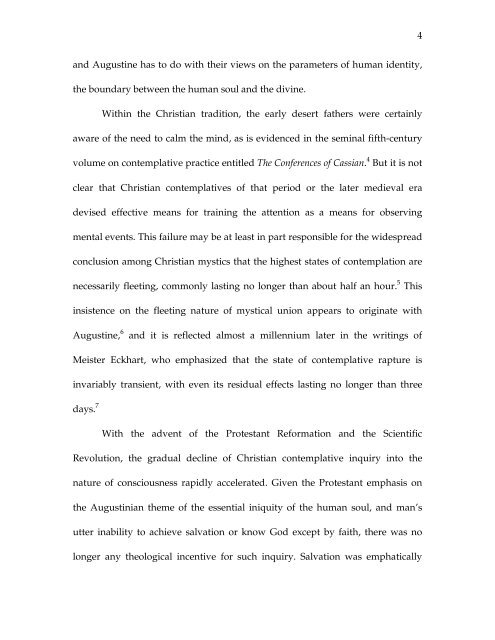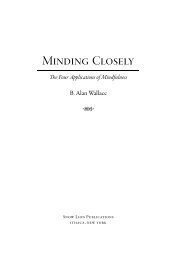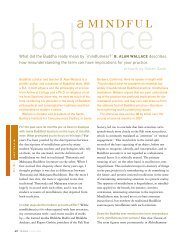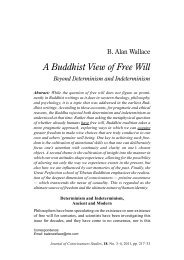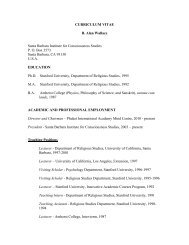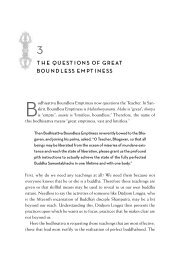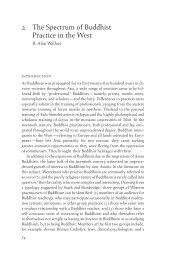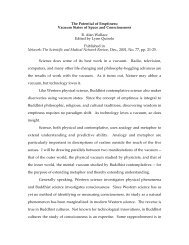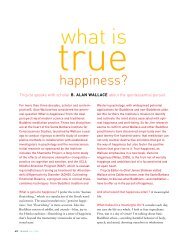“A Science of Consciousness: Buddhism (1), the ... - B. Alan Wallace
“A Science of Consciousness: Buddhism (1), the ... - B. Alan Wallace
“A Science of Consciousness: Buddhism (1), the ... - B. Alan Wallace
You also want an ePaper? Increase the reach of your titles
YUMPU automatically turns print PDFs into web optimized ePapers that Google loves.
and Augustine has to do with <strong>the</strong>ir views on <strong>the</strong> parameters <strong>of</strong> human identity,<br />
<strong>the</strong> boundary between <strong>the</strong> human soul and <strong>the</strong> divine.<br />
Within <strong>the</strong> Christian tradition, <strong>the</strong> early desert fa<strong>the</strong>rs were certainly<br />
aware <strong>of</strong> <strong>the</strong> need to calm <strong>the</strong> mind, as is evidenced in <strong>the</strong> seminal fifth-century<br />
volume on contemplative practice entitled The Conferences <strong>of</strong> Cassian. 4 But it is not<br />
clear that Christian contemplatives <strong>of</strong> that period or <strong>the</strong> later medieval era<br />
devised effective means for training <strong>the</strong> attention as a means for observing<br />
mental events. This failure may be at least in part responsible for <strong>the</strong> widespread<br />
conclusion among Christian mystics that <strong>the</strong> highest states <strong>of</strong> contemplation are<br />
necessarily fleeting, commonly lasting no longer than about half an hour. 5 This<br />
insistence on <strong>the</strong> fleeting nature <strong>of</strong> mystical union appears to originate with<br />
Augustine, 6 and it is reflected almost a millennium later in <strong>the</strong> writings <strong>of</strong><br />
Meister Eckhart, who emphasized that <strong>the</strong> state <strong>of</strong> contemplative rapture is<br />
invariably transient, with even its residual effects lasting no longer than three<br />
days. 7<br />
With <strong>the</strong> advent <strong>of</strong> <strong>the</strong> Protestant Reformation and <strong>the</strong> Scientific<br />
Revolution, <strong>the</strong> gradual decline <strong>of</strong> Christian contemplative inquiry into <strong>the</strong><br />
nature <strong>of</strong> consciousness rapidly accelerated. Given <strong>the</strong> Protestant emphasis on<br />
<strong>the</strong> Augustinian <strong>the</strong>me <strong>of</strong> <strong>the</strong> essential iniquity <strong>of</strong> <strong>the</strong> human soul, and man’s<br />
utter inability to achieve salvation or know God except by faith, <strong>the</strong>re was no<br />
longer any <strong>the</strong>ological incentive for such inquiry. Salvation was emphatically<br />
4


